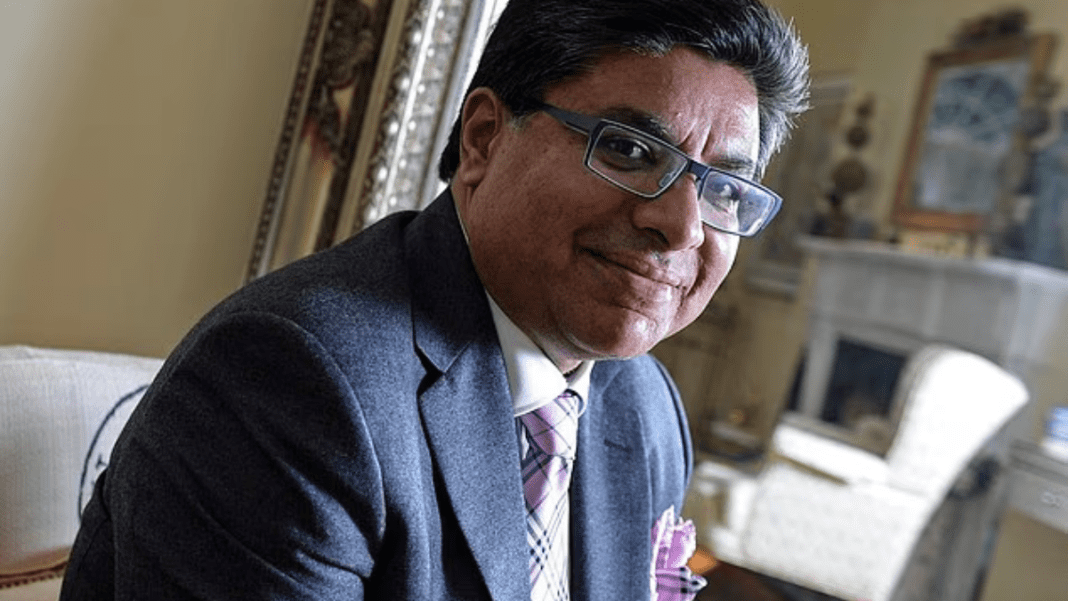A dramatic international case is exposing how a flashy Toronto lawyer and an alleged Canadian drug lord may have played a role in the killing of a key FBI witness. The investigation spans Canada, the United States, and Colombia, and it reveals a tangled criminal network that authorities say earned billions, relied on violence, and involved unexpected players — including a former Olympic athlete.
A Deadly Plot Surrounding an Alleged Drug Lord and a Flashy Lawyer
US officials say Toronto criminal lawyer Deepak Paradkar gave his client, alleged Canadian drug lord Ryan Wedding, a shocking piece of advice months before someone shot an important FBI witness in broad daylight. US attorney Bill Essayli alleges that Paradkar told Wedding, “If you kill this witness, the case will be dismissed.”
This alleged statement appears in a newly unsealed 54-page FBI indictment, which outlines how the advice may have triggered a violent plan that ultimately ended with the murder of witness Jonathan Acebedo-Garcia in Medellín, Colombia.
Canada Condemns China’s Brutal Verdict on Execution of 4 Canadians for Drug Convictions
Furthermore, investigators say Paradkar was paid not just with legal fees, but also with luxury watches. The indictment also links him and 18 others to the witness’s killing, though none has entered a plea and all allegations remain unproven.
Meanwhile, authorities say Acebedo-Garcia had been secretly helping the FBI understand how the alleged drug lord ran his criminal empire. Once Wedding learned this, officials say he immediately began gathering people to track the witness down.
Now, Wedding — one of North America’s most wanted fugitives — is still on the run. Authorities have offered a massive $15 million reward for information that helps them arrest him, and they warn that he may make drastic changes — even undergo plastic surgery — to avoid capture.
Inside the Alleged Plan to Track Down and Kill the Witness
The FBI says the chain of events began when US officials intercepted multiple cocaine shipments linked to Wedding’s alleged drug lord operation in California in 2024. As the business started collapsing, Wedding allegedly relied heavily on Paradkar, not just for legal help, but also for inside information.
Authorities say Paradkar helped arrange lawyers for several arrested couriers, which allegedly gave Wedding access to private details about clients he wanted to silence or eliminate.
Once the FBI announced arrests connected to Wedding’s network, they also revealed they had a cooperating insider — later identified by Canadian media as Acebedo-Garcia.
Wedding allegedly launched an international hunt involving:
- Atna Ohna, a Montreal organized-crime figure
- Carmen Yelinet Valoyes Florez, a Colombian madame
- Gursewak Singh Bal, operator of a gang news blog
- Edwin Basora-Hernandez, a reggaeton artist
- Allistair Chapman, a Calgary man who allegedly financed online exposure
Canada Shields Its Industries From ‘Executive-Only’ U.S. Trade Deals
Investigators say Bal posted a photo of the witness and his wife, hinting that the witness was a “snitch,” and wrote, “Good chance he’ll never be found again.”
Others allegedly paid people to find his phone number, track him online, or even fly to different countries to locate him.
Eventually, individuals riding a motorcycle spotted Acebedo-Garcia at a mall restaurant in Medellín. An unidentified gunman entered, walked straight to his table, and shot him dead.
Someone then allegedly sent a photo of the body back to the drug lord, Ryan Wedding, who circulated it as a warning to anyone who might cooperate with police.
Ohna allegedly received a bejeweled necklace as a reward for helping coordinate the killing.
A Former Olympian Turned Alleged Drug Lord at the Center of the Case
The most surprising figure in this entire operation is the man prosecutors claim ran the network: Ryan Wedding, a former Olympic snowboarder from Ontario. According to investigators, this one-time athlete transformed into a powerful drug lord with connections stretching across Canada, the US, Mexico, and Colombia.
For context, Wedding competed in the 2002 Winter Olympics in the men’s parallel giant slalom event. In fact, the FBI even named their investigation Operation Giant Slalom after his sport.
After his brief sports career, Wedding reportedly became:
- A nightclub bouncer
- A bodybuilder
- A cannabis grower
- A cocaine trafficker
He was convicted in Texas in 2009 for cocaine trafficking and deported to Canada. He stayed out of headlines for years, until 2024 when the FBI linked him to a violent, billion-dollar drug operation.
Trump Sparks Global Trade War with Massive Tariffs on China, Canada, and Mexico
Authorities say Wedding’s group used trucks, stash houses, and international couriers to move Colombian cocaine into North America. They describe the network as highly organized and intensely dangerous.
US investigators believe he is now hiding in Mexico with support from the Sinaloa cartel, one of the world’s most dangerous criminal groups.
FBI official Kash Patel even called him a “modern-day Pablo Escobar,” while US Attorney Martin Estrada said Wedding used the advantages of being an Olympic athlete not to help others but to become a drug lord who “chose to become a killer.”

